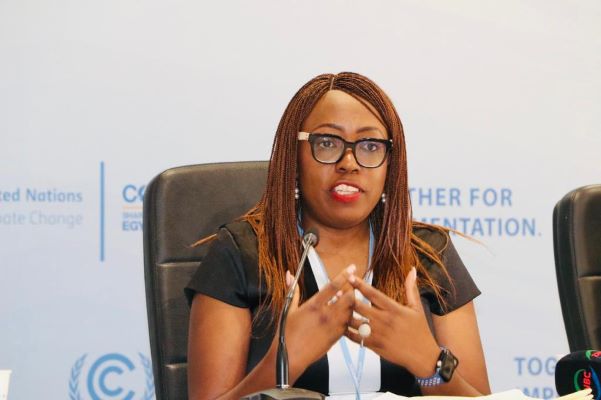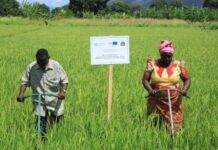Several Influential women in Zambia have joined hands advocating for urgent sustainability climate action and seek solutions as espoused under the United Nations Sustainable Development Goal 13 amid global campaign against the crisis-threatening global development and peace.
Barely a month after the lapse of the COP 27 conference that pushed for climate financing, the Women Leaders for Climate Action seeks to drive the climate action to deter the devastations.
The women, with different backgrounds-some-climate change campaigners-seek to champion corporate ambition in the fight against climate change and create a future that is low-carbon and climate resilient.
It will collectively and individually monitor ecosystems at risk and drive solutions to deliver a sustainable and climate resilient future for communities, businesses, among others.
The Women Leaders for Climate Action, with support from various partners and interest groups seek to, among other objectives, amplify the voices and solutions of women whose livelihoods are put at risk by climate change and environmental degradation.
Group representative, Nachilala Nkombo-Zambia’s Country Director Wildwide Fund for Nature (WWF) in a statement to FRA says the group will strive to promote Zambia’s global leadership on climate and environmental sustainability solutions.
The action will be undertaken by steering the development of natural based solutions and a pipeline for bankable green financing instruments and projects in the country.
Advocate for specific policy initiatives and create awareness on individual environmental sustainability, and operationalize the green economy to secure an economic future for all Zambians.
It will also endeavor to promote corporate environmental stewardship through widespread implementation of environmental, social and Governance (ESG) framework within the institutions as part of climate action espoused under Sustainable Development Goal 13.
Zambia’s Central Bank has thrown its weight towards climate action. It will formulate a regulatory framework and ensure financial services providers are assessed and disclose climate change-related risks in their operations to improve the uptake of green finance, says Governor, Dr. Denny Kalyalya.
The action is being spearheaded because the financial sector’s approach to environmental issues through Corporate Social Responsibility (CSR) is not enough. The sector requires a broader framework to assess the extent to which clients and assets are exposed to environmental and climate risks, he says.
Meanwhile, WWF has commended Zambia for finalizing the guidelines on the issuance of Green Bonds, one of the instruments for lobbying financing for green growth pathways and sustainable development and fund projects for positive environmental and/or climate benefits.
The guidelines will also drive for the establishment of tax exemption on Withholding Tax on interest earned on green bonds as part of the lobby for enhancing Zambia’s transformation into a clean and greener economy.
WWF wants guidelines to act as a means of avoiding greenwashing in projects which is the term to describe the perception of a product as environmentally friendly when it is actually not. The Guidelines will transform the economy and set a foundation for a green.
The bonds are incorporated in the Lusaka Stock bouse listing rules and offer ring-fenced funds for investments in sustainable agriculture, energy-efficient buildings, clean energy, industry and transportation, water and waste, even biodiversity conservation, in among other thematic investment areas.
Green bonds are envisaged to be one of the several financial instruments that can ensure capital is used to finance sustainable transitions and green growth strategies.
“There is a need for total transformation and well-articulated guidelines of our country’s development patterns are needed in order to shift us towards a more sustainable and resilient
economy, to keep the global temperature increase below 2°C (or even 1.5°C), and adapt to the impacts of climate change,” Ms. Nkombo said.









